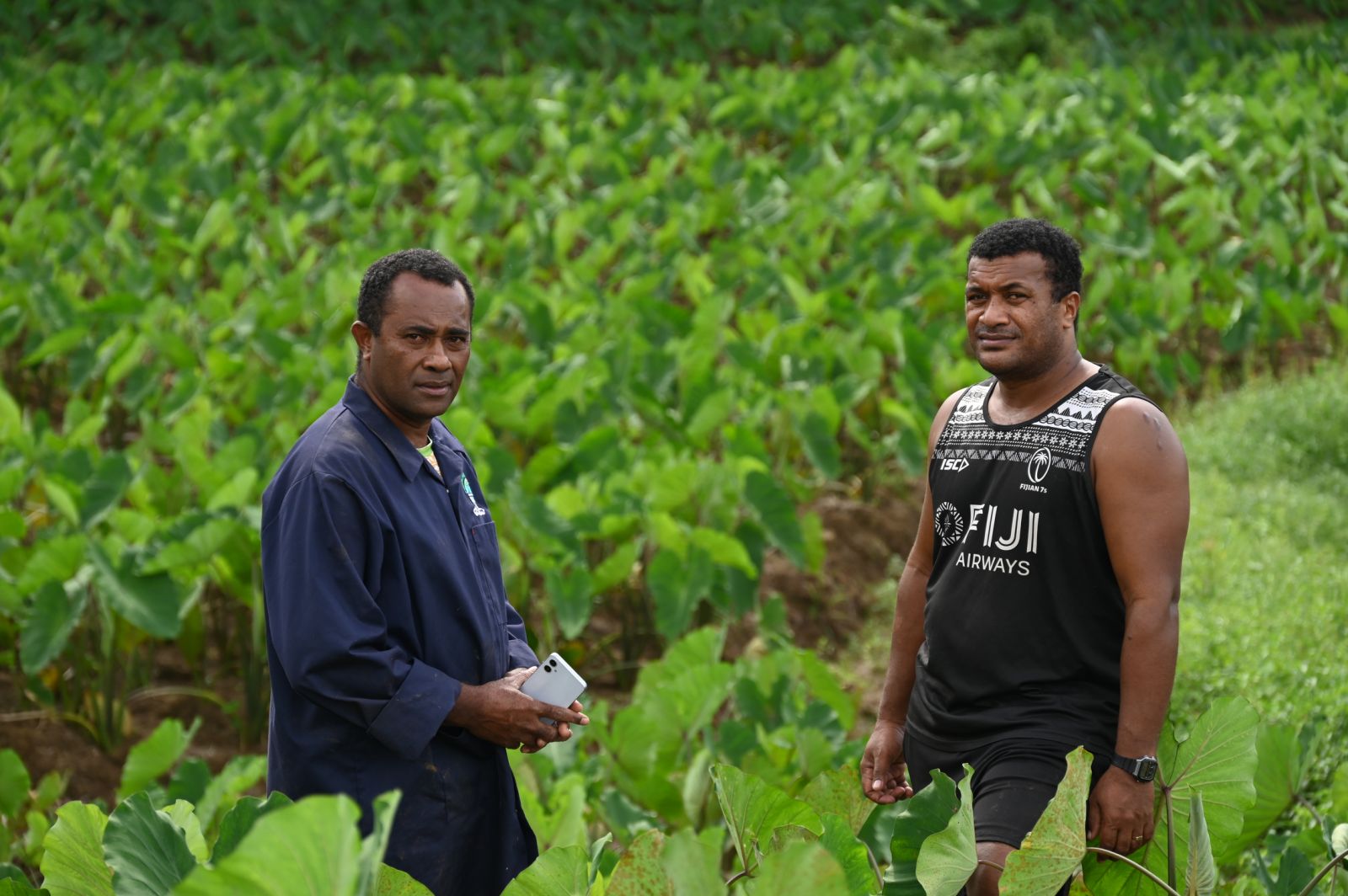FROM TAXI DRIVER TO TARO FARMER

At age 38, Naibuka Kaloudonu of Waidracia village in Naitasiri walks his land with purpose. Four years into planting tausala dalo (taro), with his fifth season approaching, he’s cultivated not only crops but a vision seeded by hardship.
“I’m still planting,”
he says plainly. “And short-term crops too, like vegetables, plantain and
banana, this for home consumption while Tausala is for the market.”
The path to farming wasn’t new as he was also raised by a
farmer- his late father.
“My father was a
farmer,” Naibuka shares. “I grew up watching him. I saw his weaknesses; they
became my lessons.”
When his father passed away in 2019, Naibuka was a bus and
taxi driver in Suva, clocking close to ten years. But the routine left him disillusioned.
“No matter how hard you worked, your pay stayed the same.
Even if you gave new innovative ideas to help the company, the pay never
changed.”
“While in Suva, I thought, what could be achieved if you
apply effort to land instead?”
That reflection brought him home. His father's taxi permit,
once a symbol of urban hustle, became the seed fund for his farm.
“I sold it, invested in dalo seedlings, and paid people to
help.”
“The journey wasn’t smooth and started with 14,000 dalo
suckers, and because I was a newbie, it dropped to 10,000 before climbing again
to 15,000.”
Every setback for him was a lesson. In 2024, his harvest
reached $70,000.
“I now manage the
farm with my funds from the harvest, buying manure and everything else, including
labourers wages.”
The land, a 100-acre plot once transferred by his father to
his mother is now his to manage.
“I use about 20 acres. The rest is idle, waiting for
machinery to clear it, it will be cleared in due time and made use of,” he
said.
Through assistance from the Ministry of Agriculture and
Waterways, including land preparation hours and soil testing, his dream to
cultivate all 100 acres is slowly forming roots.
His markets include Bens Trading, Sai Yee Foods, Taveuni
Kava, and Joe’s Farm. But saturation poses a challenge.
“Many farmers, few markets. Prices drop when demand is low, from
$2 to $1.80.”
Still, his eyes are on export.
“I want to send my dalo abroad. I don’t yet know how, but my
heart wants it, companies set their prices, if I can run my own export
business, I can help other dalo farmers around me.”
One of his proudest achievements last year was using the
income from a single dalo plot to pay off his father's $50,000 land and vehicle
debt and with the remaining earnings, he bought a farm vehicle, cleared more
land, and paid workers to help.
Naibuka estimates it would take 5–7 years to clear all land
manually. “If I get my own machine which I am planning to, it’ll be much
faster.”
Under the Machinery Outsource Program of the Ministry of
Agriculture and Waterways, Naibuka received 20 hours of land preparation
assistance during the 2024/2025 financial year, the support that helped him
expand his farm and move closer to his goal of cultivating all 100 acres.
His message to youth and parents is simple and strong.
“If you have a vision and a plan, work towards it. Don’t
hesitate. Ask questions. There’s money in the land but you won’t see it without
clear goals,” he said.
“Know what you’re planting, every step, and every cost,
learn to use your finances and return the money to the land.”
“There’s no benefit in careless kava drinking, partying, and
drugs, plan each day, each week, each year. How many years do you have left
while you’re still strong? When is the time to earn? If you’re careless, you
won’t see the blessings.”
ENDS
